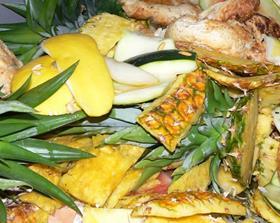
In a bid to win signatures and raise awareness about food waste, WRAP has published a number of new case studies from its Cautauld Commitment 2025 members.
Signatories of the commitment, which aims to double the amount of food surpluses sent for redistribution against a 2015 baseline, include many of the UK’s largest grocery retailers and food and drink manufacturers, as well as hospitality and food service businesses.
Among the schemes being vaunted by the Waste and Resources Action Plan (WRAP) is the Tesco Community Food Connection programme, which since has donated enough food to provide more than 5 million meals to over 3,300 UK charities and community groups.
The scheme now operates from all 805 of Tesco’s large stores, as well as 122 convenience stores. In 2017 it will be rolled out to all Tesco branches.
Another case study published by the charity was Marks & Spencer’s Neighbourly national scheme, which has provided 730,000 meals to 520 charities and community groups across the UK.
Also praised were Sainsbury’s project with food waste app Olio, which saw over 10,000 food items collected from food outlets, and Asda, which joined forces with surplus food redistributor Company Shop to divert food with less than three days shelf life.
In addition to these case studies, WRAP will launch a dedicated Redistribution Module this year as part of its Your Workplace Without Waste staff engagement programme.
Aimed at employees working in the food and drink manufacturing and retail sector, the programme will offer training to businesses on increasing or improving redistribution models within their own operations.



